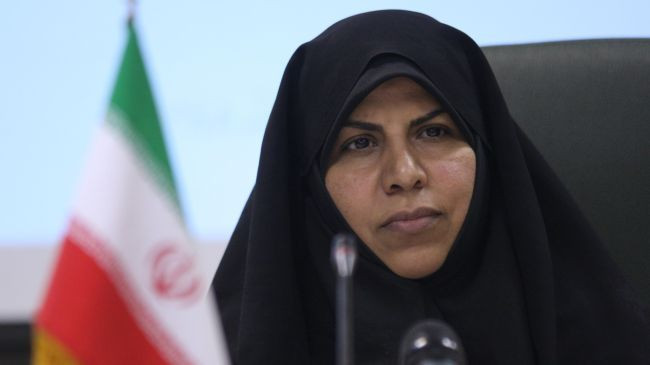The Sacking Of Marzieh Vahid Dastjerdi And The State Of The Opposition In Iran

The sacking of the only female minister in Iran's government announced Thursday represented a severe blow to anyone who was hoping to speak out against the country's establishment anytime soon.
Marzieh Vahid Dastjerdi, Iran's former health minister, was reportedly fired by President Mahmoud Ahmadinejad after publicly disagreeing with him over why the price of medical supplies in the country was skyrocketing and becoming unaffordable for most Iranians.
Vahid Dastjerdi asserted that sanctions imposed on the Iranian economy by the European Union and the U.S. were the cause of the price inflation, and she criticized the government for mismanaging Iran's foreign-currency reserves, according to the Associated Press.
Ahmadinejad has maintained that the sanctions have nothing to do with prices and have had no real effect on the Iranian economy at all.
"Medicine is more essential than bread," Vahid Dastjerdi reportedly said on state television. "I have heard that luxury cars have been imported with subsidized dollars, but I don't know what happened to the dollars that were supposed to be allocated for importing medicine."
No official reason for Vahid Dastjerdi's dismissal has been released by the Iranian government. She was suddenly replaced by Mohammad Hassan Tariqat-Monfared, Press TV reported.
Vahid Dastjerdi was Iran's only woman in the government. However, she was neither especially progressive nor particularly pro-woman as a lawmaker. Nonetheless, she was one of only three women nominated by Ahmadinejad for various positions after the controversial 2009 elections, and the only one of those three to be approved for her post.
Indeed, Vahid Dastjerdi has been known to be a social conservative, and thus in not very popular among women's-rights activists in Iran.
Still, Vahid Dastjerdi was the first woman to serve as a minister since the 1979 Islamic revolution that toppled the erstwhile Shah of Iran.
Much has been made of her gender, but her firing has less to do with women's issues than political issues, said Faraz Sanei, an Iran and Bahrain researcher at Human Rights Watch.
"Her [sacking] is indicative of an Iranian government in disarray," Sanei said. "Since the 2009 elections, the government has really shown very little respect or acceptance of dissent in the country. ... [T]here's been a widespread crackdown on dissent in the country. We've also seen internal fighting since then -- between Ahmadinejad's government and the conservatives on the religious bench, and within his [Ahmadinejad's] own government."
Initially elected as a populist, Ahmadinejad is nearing the end of his second and last term. His administration has been marked by political strife, both domestically and internationally.
In March, Iran's Majlis, or parliament, attempted to impeach him, and he has steadily declined from being a voice of the people to becoming an outcast even among conservatives.
Severe economic mismanagement has crippled his legacy, while his refusal to cooperate in curtailing Iran's nuclear program has hurt Iran's standing internationally.
"I think the government is too conservative," Sanei said. "The political situation in Iran is just such that reformists or progressives have had no place in the government or even in the parliament."
© Copyright IBTimes 2024. All rights reserved.






















